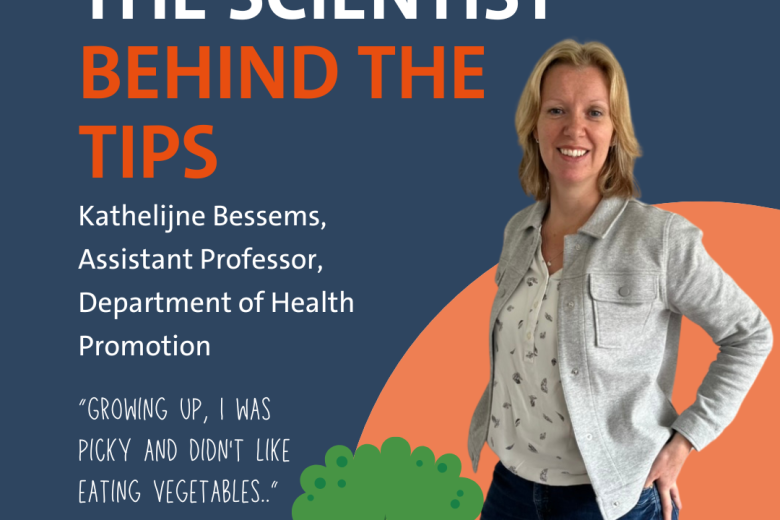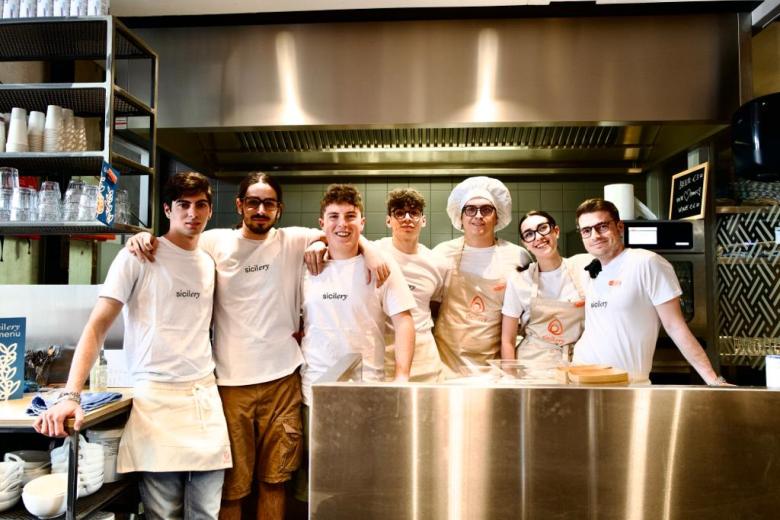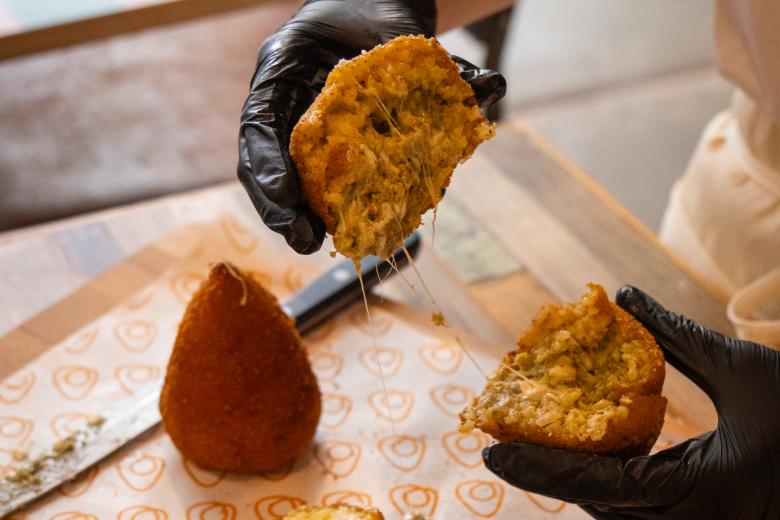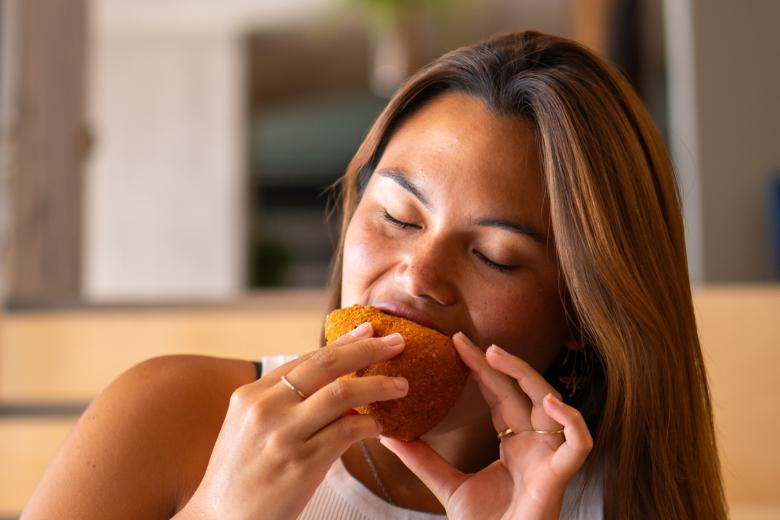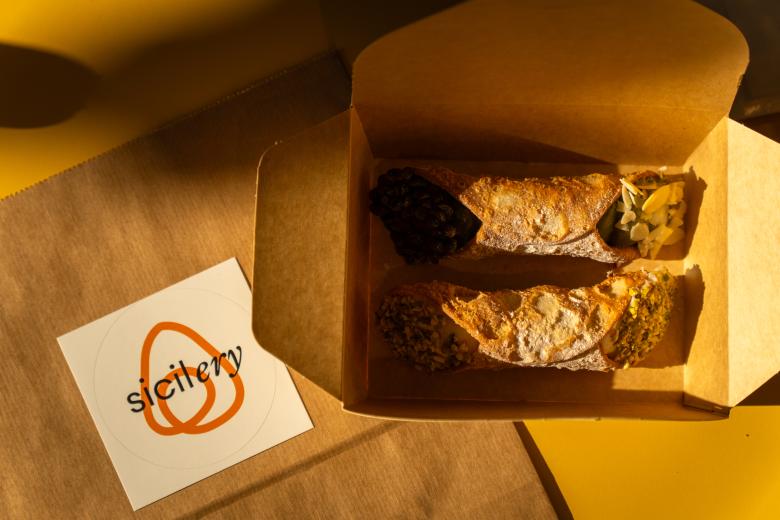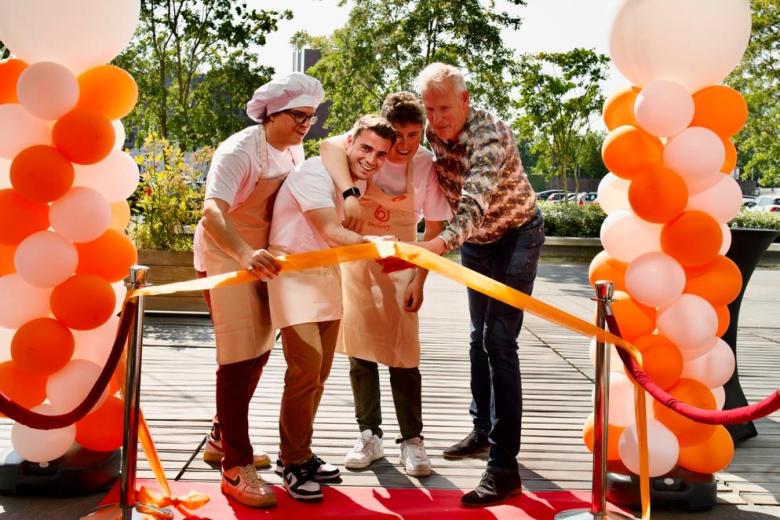Sustainable, inclusive and Sicilian
Maastricht has a Sicilian pop-up embassy. Putting to good use what he has learned in the master’s programmes Sustainable Finance and Entrepreneurship & Business Development, Giuseppe Di Rosa and his student partners have founded fast food restaurant Sicilery.
Giuseppe Di Rosa doesn’t look tired as he should as he rhapsodises about Sicilian cuisine and hospitality and explains the menu to the customers trickling in. The 22-year-old only graduated two weeks ago from the double track master’s programme Sustainable Finance and Entrepreneurship & Business Development. For the last six months, he has been working for ROBECO, an asset management firm in Rotterdam. Six weeks ago, he and his partners opened Sicilery, a – you guessed it – Sicilian restaurant.
“Initially, the idea was ‘by students, for students’ – but then we came to realise that this was an unnecessary limitation,” Giuseppe explains. “The most important thing for us is that it’s accessible for everyone, that it’s inclusive.” The most expensive item on the menu still comes in under €7 (and is filling enough to count as lunch). An authentic espresso costs less than €2. [In case you’re reading this in Sicily, know that that’s very affordable here – also: hi and welcome!]
Another aspect of Sicilery, heavily influenced by Giuseppe’s education at UM, is sustainability. “We don’t use plastic; all the packaging is made from seaweed, the menus and posters are printed on algae.” They also handle a zero-waste policy. The food is made by hand in a factory in Sicily; the production process is documented on Sicilery’s Instagram.
The flagship item on their menu is the arancino, which you imagine as a breaded and fried ball of risotto with various fillings, often ragout or cheese although Sicilery also offers vegan options. “When I moved here, I discovered bitterballen, which look and feel like a mini arancino – so we thought that culturally it would translate really well. The barrier is to get people to try – usually they like it and come back!” They also offer sweets associated with Sicily like cannoli and granita in brioche.
Text continues below the photos.
Entrepreneurial spirit and cultural pride
Giuseppe founded Sicilery together with Rocco Leone, whom he knew from Sicily and his cousin Ottavio Leone, who manages the supply chain. “We also have people working remotely: Nicola, who studies in Milan, does all our graphic design and my brother Giorgio – he’s still in high school, he was 15 when we started – has developed the software we’re using. And we have Gloria and Michele who helps us run the restaurant. Everyone is Sicilian.” Sicilery has now also hired student assistants to help with communication.
Sicilery is currently a pop-up in SNS de Ruimte at the back of the Sphinx building. From June to September, the bank allows the students to rent their location at an affordable rate in exchange for added visibility. Sicilery relies heavily on social media marketing. “Not many people happen to find us because the location is a bit hidden away. Initially, we had many students from the social media campaigns and events we did. To be honest, I was a bit scared to launch in June because the students would all leave town… but since then, we’ve found an additional customer base: Italian expats who come regularly or people who’ve heard good things about us from friends or colleagues.”
They have served more than 2,000 customers so far and the feedback is very positive about both the food and the restaurant. “Yes, it’s a lot of work obviously, really long days – but we love what we do, we love the product, we love the idea and we love the atmosphere – it’s a challenge more than a problem.”
Uphill struggle for new ideas
That’s not at all to say that everything was Mediterranean bliss. “Finding a location was and still is the major issue.” Having found it easy to flourish in UM’s open, international community, Giuseppe found things rather different as an entrepreneur. “We got very little help or encouragement. It was just three foreign students on our own. It continues to be an uphill struggle.”
They rely on online translation engines for their correspondence with the municipality and struggle to get a permit despite having found a new location. “The municipality is sceptic, maybe because we are students, maybe because we aren’t Dutch. The only real feedback we got from them was to go to another city.”
Giuseppe didn’t. “I love Maastricht – I want to stay. I’ve learned so much studying and working at UM!” He says that he’s using the soft skills and the approaches from the Sustainable Finance programme every day. “We also want to show that students can add value to a city in a way. At this point in our lives we can still take risks and invest all this time – that will change when we have families. I don’t want to be in an office yet – I want to create something of my own and have these experiences.”
They are now working with a consultant in the hope of getting a permit. “I’m sure we’ll find a way together with the municipality. There are definitely enough people enjoying what we offer and we enjoy this opportunity to celebrate our culture.”
Text: Florian Raith
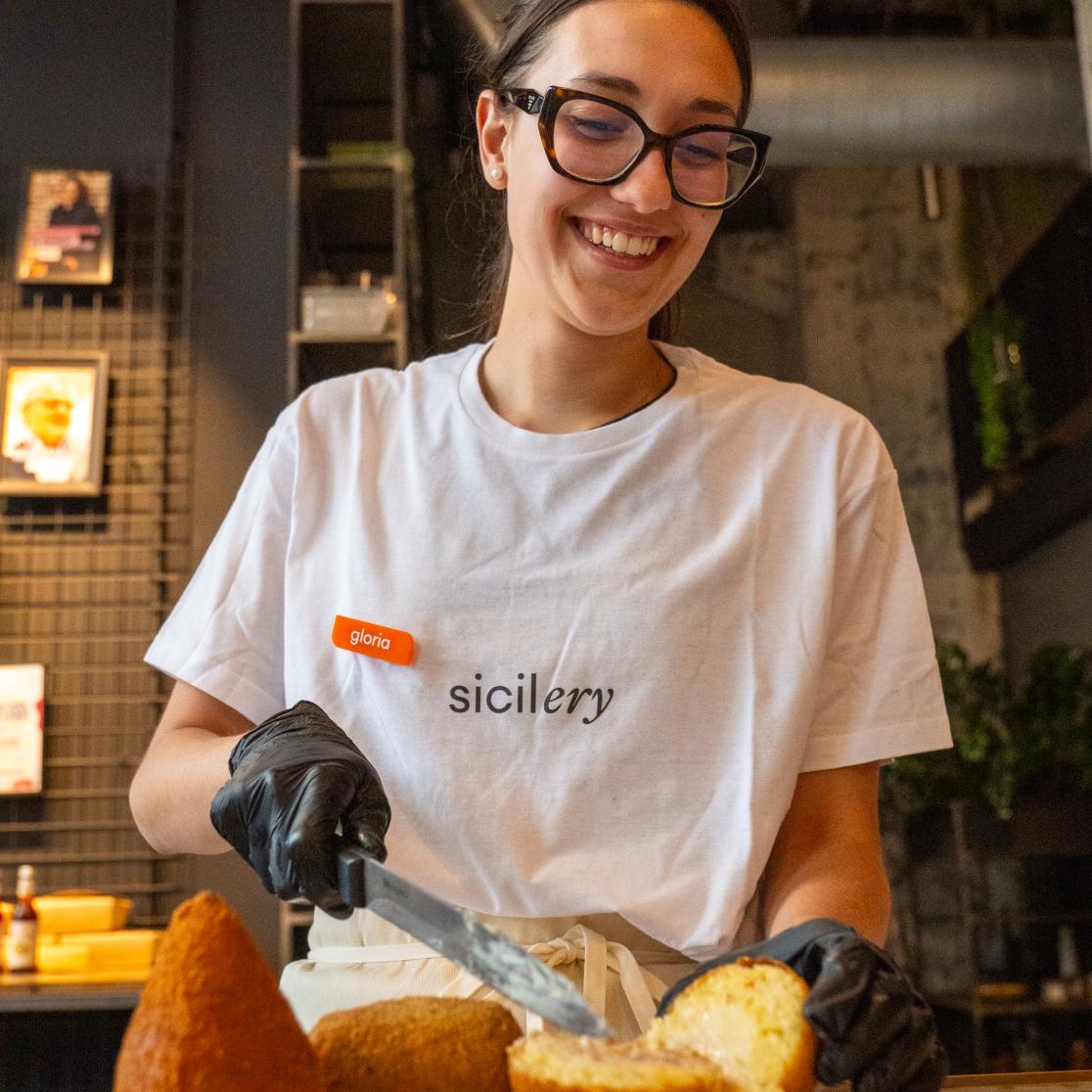
Also read
-
Europe Day
To celebrate Europe Day on 9 May, FASoS student Lisa travelled to Brussels to meet with five of our inspiring alumni who are currently shaping European policy and advocacy. In this video, they share why Europe Day matters, how it’s celebrated in Brussels, and what the idea of Europe means to them.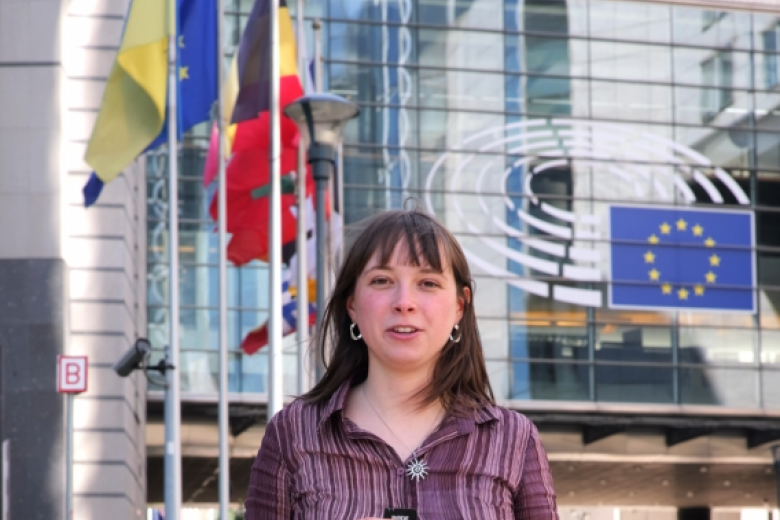
-
The Green Office Catalyses Circularity Projects’ Autonomy
This semester, the Green Office cultivated the untapped potential of the Community Garden and the Clothing Swap Room. We hope that these Circularity Projects will operate under autonomous, functional organisations by this time next year, with continued support from the Green Office and the SUM2030 team... -
Evidence-based health tips for students: the science of eating healthy
In the upcoming months, we’ll share tips on Instagram for our students on how to live a healthier life. Not just a random collection, but tips based on actual research happening at our faculty. The brains behind this idea are L ieve Vonken and Gido Metz, PhD candidates at CAPHRI, the Care and Public...